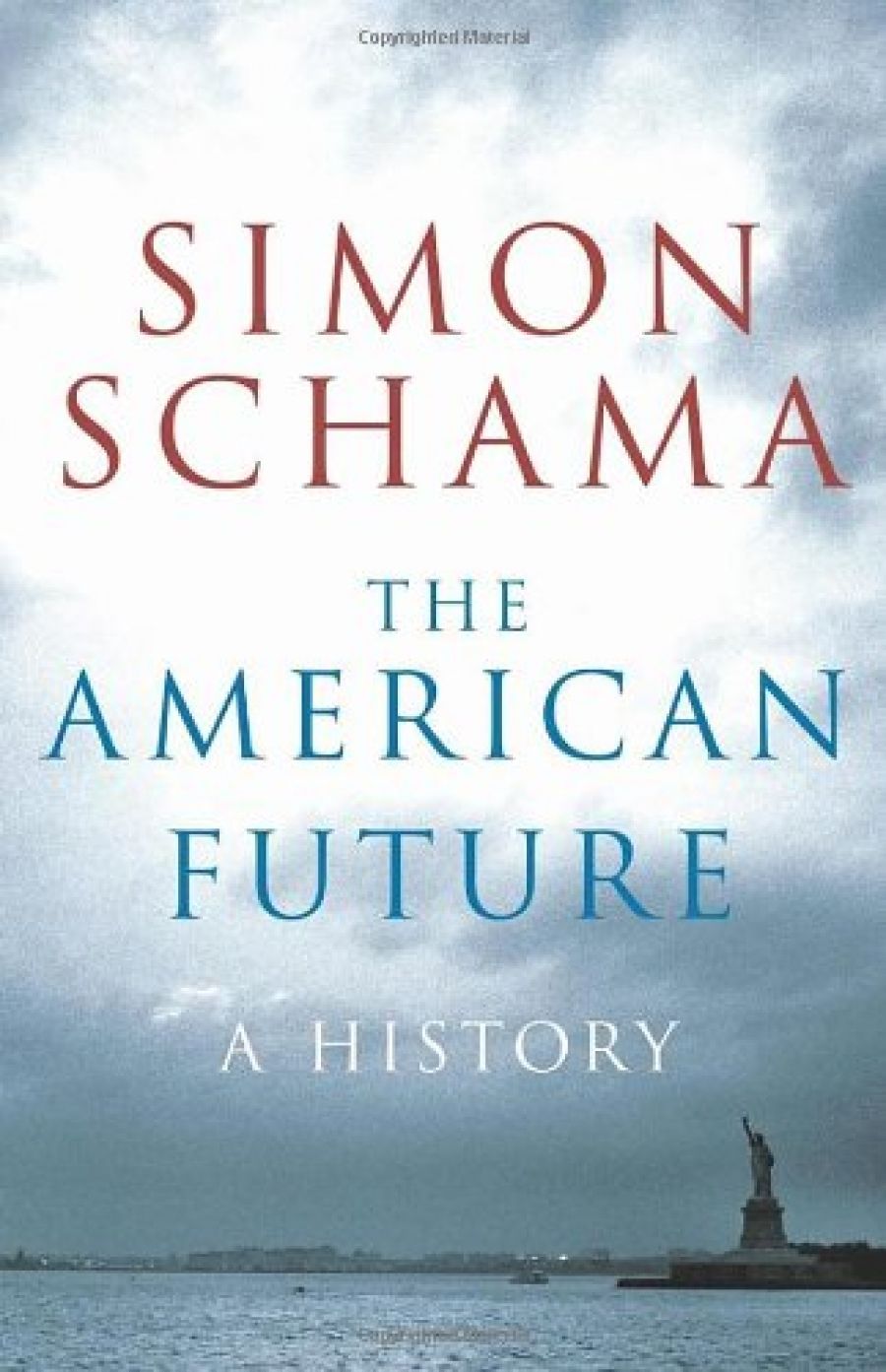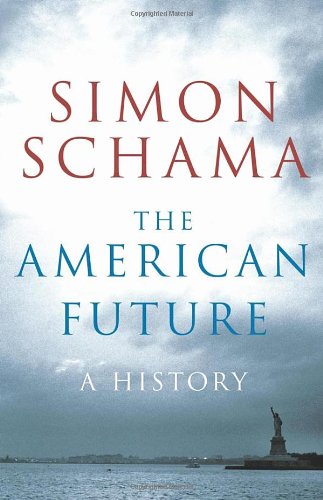
- Free Article: No
- Contents Category: History
- Review Article: Yes
- Article Title: The people are disappointed
- Online Only: No
- Custom Highlight Text:
As he stepped down from the podium at the Gettysburg battlefield in 1863, President Abraham Lincoln was unhappy. The speech was short and finished abruptly. The crowd was slow to clap. Lincoln turned to friend and occasional bodyguard Ward Lamon. ‘That speech won’t scour,’ he told Lamon. ‘It is a flat failure, and the people are disappointed.’
- Book 1 Title: The American Future
- Book 1 Subtitle: A History
- Book 1 Biblio: The Bodley Head, $35 pb, 392 pp
- Book 1 Cover Small (400 x 600):

Hence the president’s regret that his elegant and precise statement of American exceptionalism missed its mark. The audience preferred the lengthy description of the recent battle, delivered from memory, by former senator Edward Everett. Yet Everett, at least, understood the power of Lincoln’s succinct sentences. ‘I should be glad,’ he told Lincoln in a letter the next day, ‘if I could flatter myself that I came as near to the central idea of the occasion, in two hours, as you did in two minutes.’
That central idea was America – the last, best hope for mankind, as President Bush called it recently. Such continuity in presidential rhetoric is no coincidence: as Simon Schama argues in The American Future, history hangs heavy over the United States. The founding generation permitted slavery in the south as the price of union, despite a constitution recognising certain inalienable rights; eventually this unstable mix prompted civil dispute. Lincoln went to war to preserve the Union, not to end slavery, since it was the American experiment that for him justified the sacrifice of those thousands buried at Gettysburg. This idea of America has animated the generations to follow, with Lincoln’s failed speech still its most eloquent statement.
British historian Schama sees a unity in American experience: early decisions shaped the choices of later presidents, so that American politics is a constant dialogue with the past. Schama explores this seamless national narrative through four big themes in American life: war, religion, immigration and rural movements. He is interesting on each, though the book often displays its origins as a television series, with leaps of subject matter that suggest a search for promising visuals.
Military life is explored through multiple generations of the Meigs family – early soldiers for the new republic, pat-riots and, most memorably, through Meigs, Quartermaster General during the Civil War. Fiercely loyal to Lincoln and the Union, Montgomery Meigs was equally angry at his fellow West Point graduate Robert E. Lee for abandoning the north to command the armies of the Confederacy. Equipping and sustaining Union armies was not revenge enough; Meigs also seized Lee’s family house in Virginia and buried 16,000 Union dead right up to the portico, so that if Lee returned home he would have to live among those who gave their lives to his defeat. The graveyard has become Arlington National Cemetery, while the Meigs family remains prominent in military affairs; the latest Montgomery Meigs, once again a West Point graduate, recently retired as an army general following service in Vietnam, the Persian Gulf and Bosnia. His interview with Schama suggests doubt about the cost of recent American adventurism abroad; ‘something Americans don’t do well’, suggests General Meigs, is ‘understanding other cultures’.
From guns to God, Schama explores a further continuity: endless arguments about the role of religion in American life. His entertaining account contrasts the dull Protestant conformism of John Adams in Massachusetts with the broad curiosity, and deist beliefs, of Thomas Jefferson in Virginia. Jefferson’s commitment to religious freedom appears in the American constitution, but Adams made religious observance every Sunday compulsory in Massachusetts. The law was eventually repealed, but the fight over the state and religion endures. Schama has less to say about contemporary religious debate in America, perhaps because the terms of contest have changed little since the foundation of a republic that, unique for its time, professed freedom of religion with no established church.
The closing sections have greater resonance for an Australian audience. Schama sketches the disgraceful treatment of Chinese migrants in the nineteenth century, drawn to gold fields and railway road construction, only to be expelled once work evaporated. Yet, once more, the American founding carries consequences; Chinese born within America eventually used their constitutional guarantee of citizenship to contest racist laws.
The Cherokee, surveyed in the final chapters, were not so fortunate, their treaties with the government violated repeatedly, their land stolen and, eventually, the remaining families shipped to inhospitable desert reservations. Like the first Australians, the first Americans endured displacement and violence. Schama uses the story of the Cherokee to stand for the fate of the many native American nations swept aside by European settlers claiming as manifest destiny a continent from sea to shining sea.
All strong themes, but they sum to less than a book. Schama writes with wit and passion, yet The American Future is a collection rather than an argument. His theme is the continuity of American experience, yet the choice of subject seems arbitrary. Schama enjoys historical irony, and works numerous vignettes into the text: former slaves turned Union soldiers guarding their Confederate masters as prisoners of war; the government of Mexico patrolling a porous border to keep American migrants out of its Texan territory; Christian Fundamentalist leader Jerry Falwell aligning with terrorists to describe the 2001 attack on the World Trade Centre as God punishing a sin-stained America. Yet the claimed purpose of the work – to reflect on America’s future in a presidential election year – is never quite realised.
Perhaps publishing deadlines prevented Schama from speculating on contemporary American politics. He opens the volume with reflections on the Iowa primaries (complete with impressive name calls), but thereafter the focus drifts toward the past. Schama must have delivered his manuscript – and television programmes – to editors before Labor Day, the traditional start of the presidential campaign. There is only passing discussion of the 2008 candidates, and the book was with the printers before the financial crash that will likely shape the next presidency.
The American Future joins, in self-conscious fashion, a long tradition of writing about America. In this the United States is fortunate. Its dramatic history has provoked continuous reflection about the nature of American experience and character. As a Briton living in America for three decades, Schama writes with engagement yet distance. He provides an original – if somewhat incoherent – contribution to a crowded field, finding, with his predecessors, an American mosaic, the best and the evil in one beguiling package.
Like Lincoln, Schama takes words seriously. He is drawn to Barack Obama’s evocation of the American past as ‘the solid ground beneath the high-sailing dirigible of his rhetoric’. Obama impresses because, like American politicians before him, he echoes Cicero, and leads his audience to contemporary issues through the American past. So it was no surprise when, in March this year, Obama travelled to Pennsylvania and spoke near the hall where the original American constitution was framed and signed. The campaign event occurred too late for Schama’s book, but it demonstrates many of his themes. Obama spoke eloquently about America’s improbable experiment in democracy, about a republic stained by slavery but which, after a mighty struggle, adopted equality before the law to create a union that could be, and should be, more perfect over time.
This time the people were not disappointed. But then, they had centuries to prepare for the message.


Comments powered by CComment